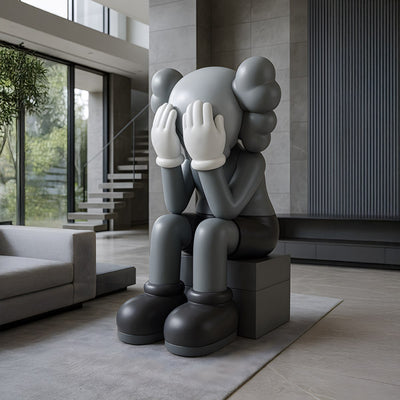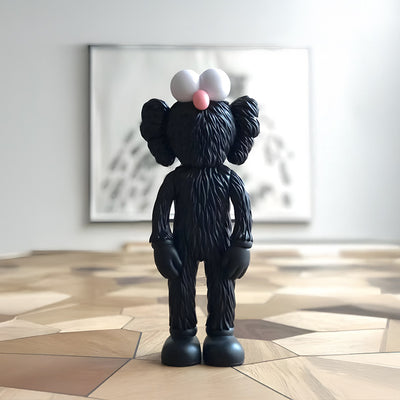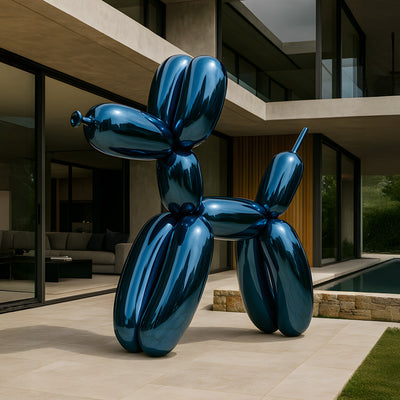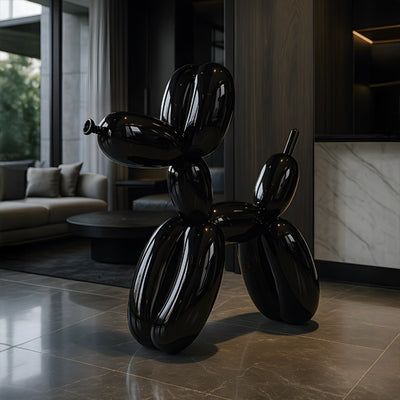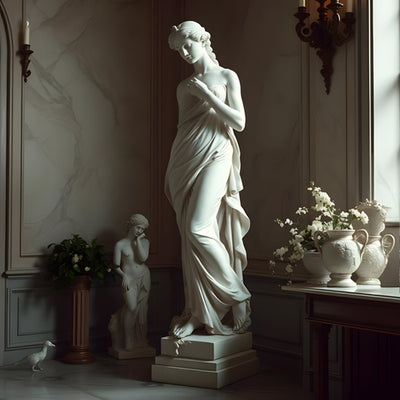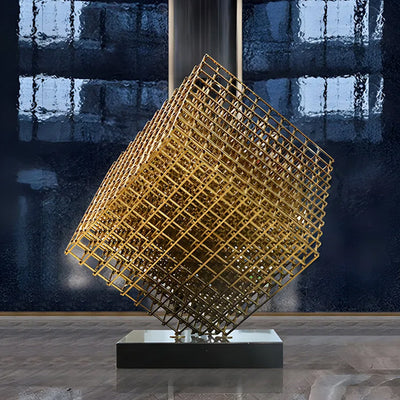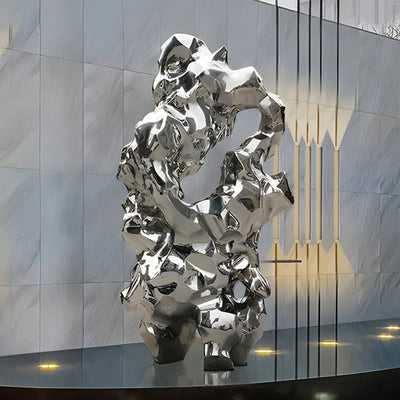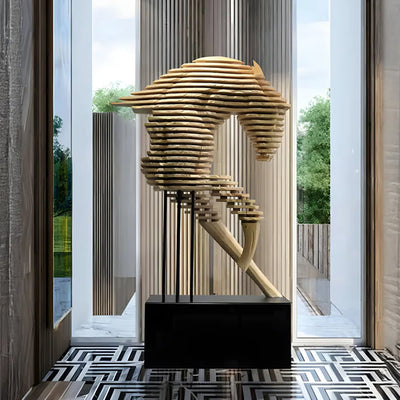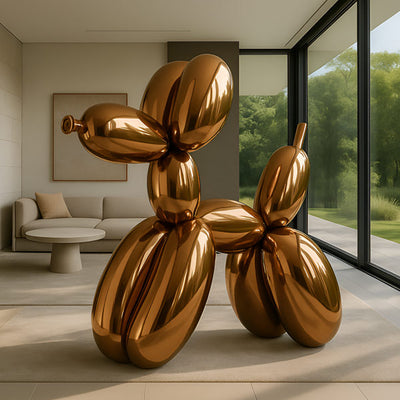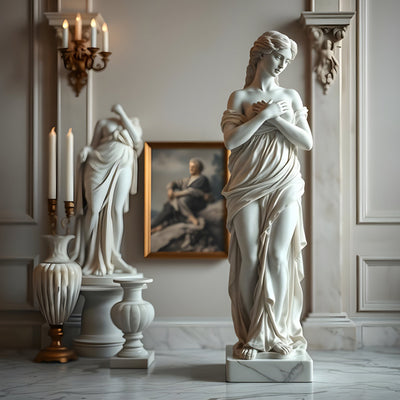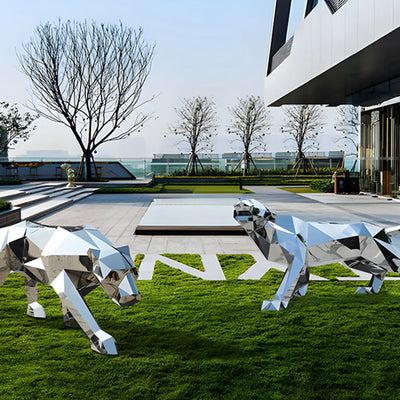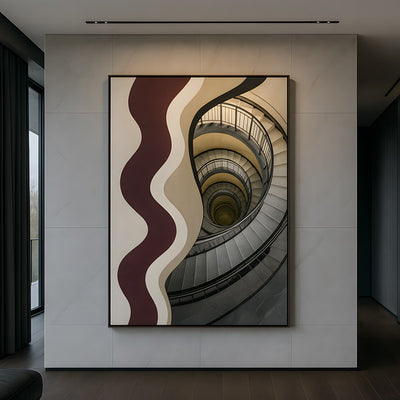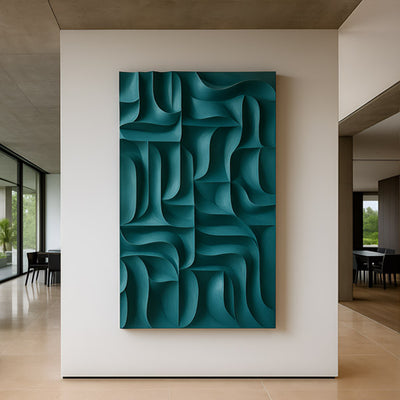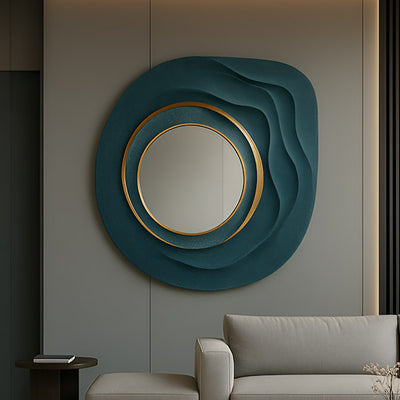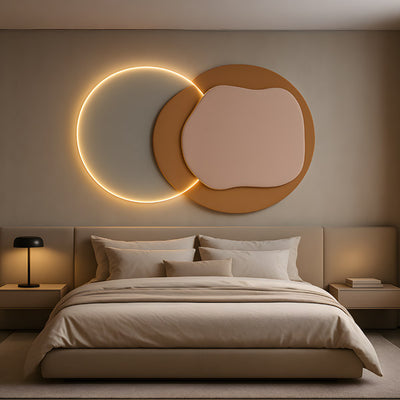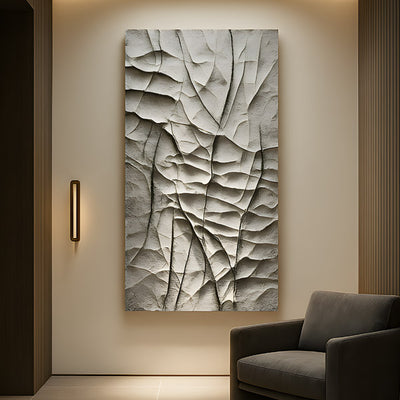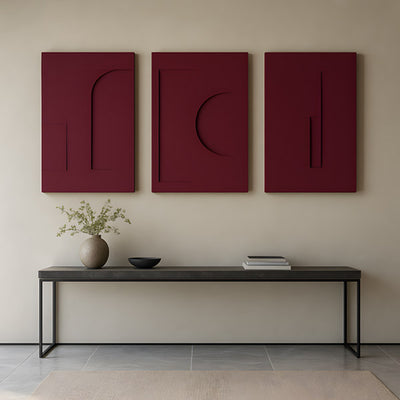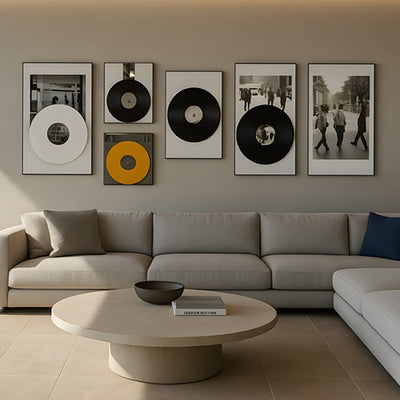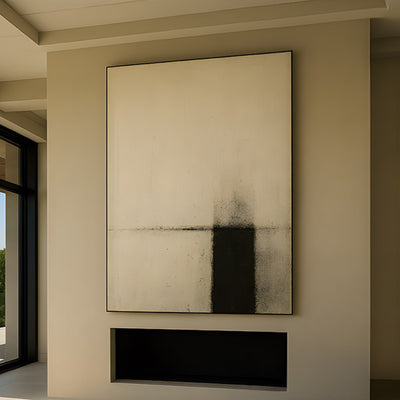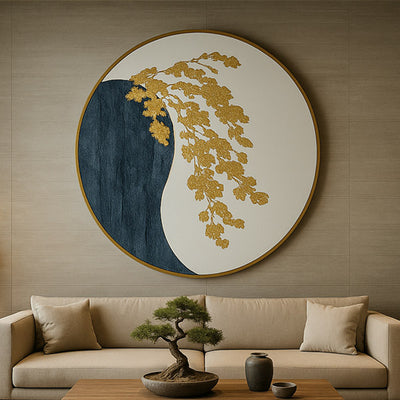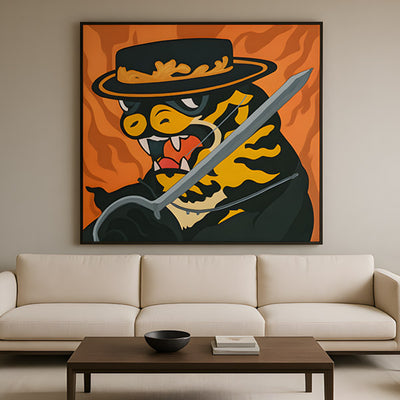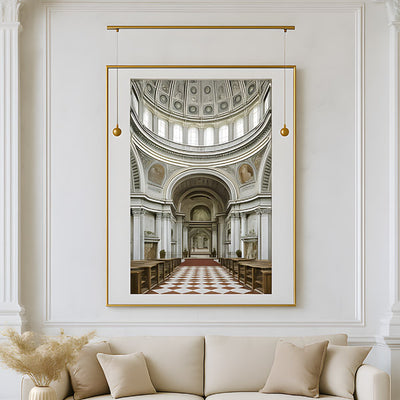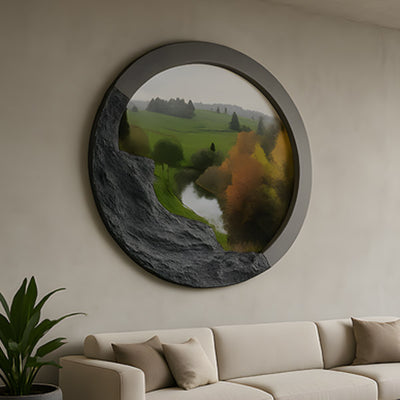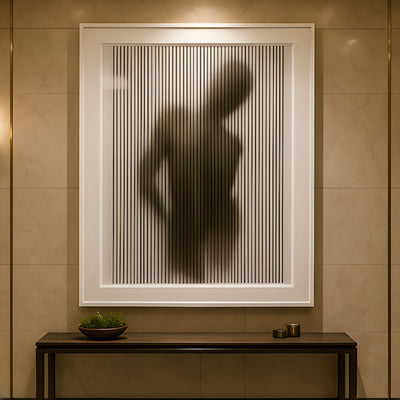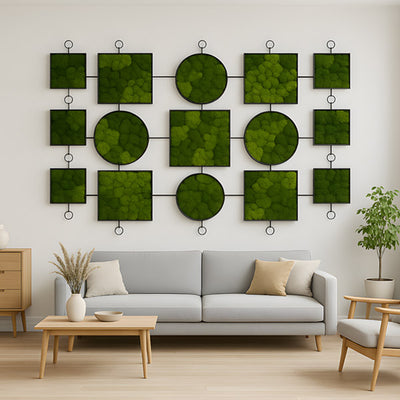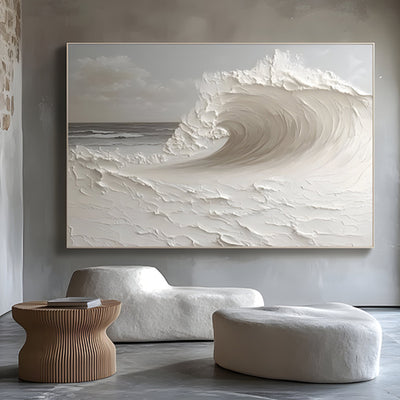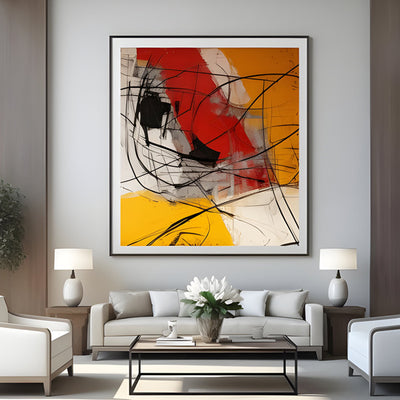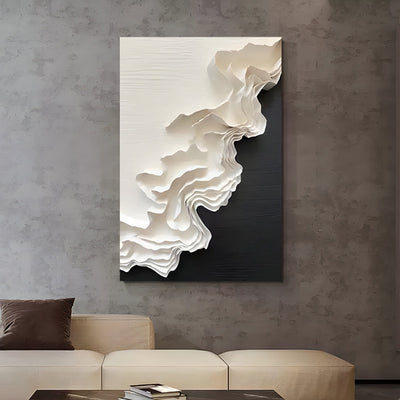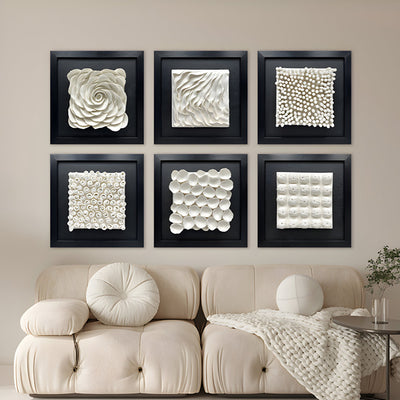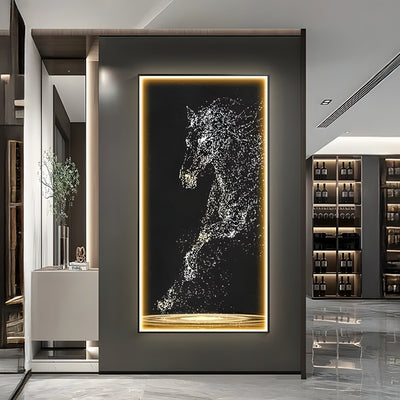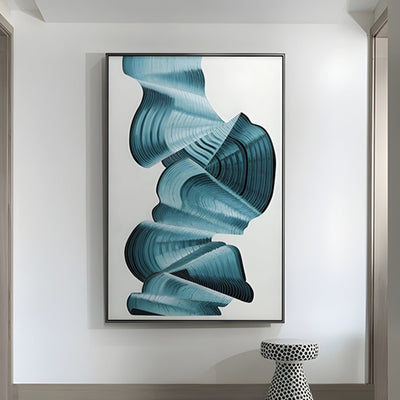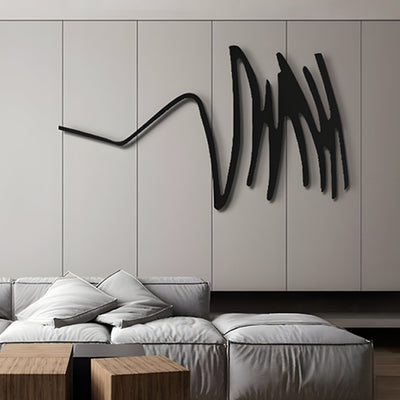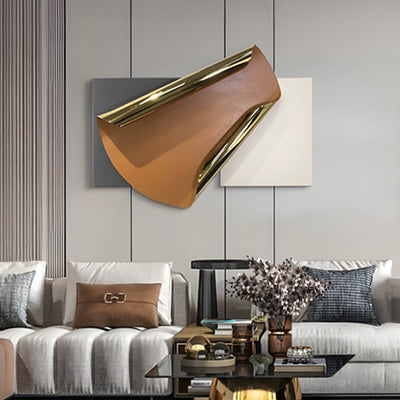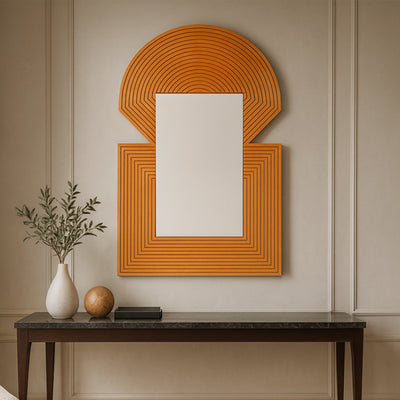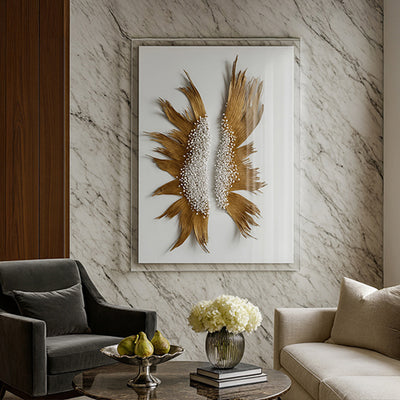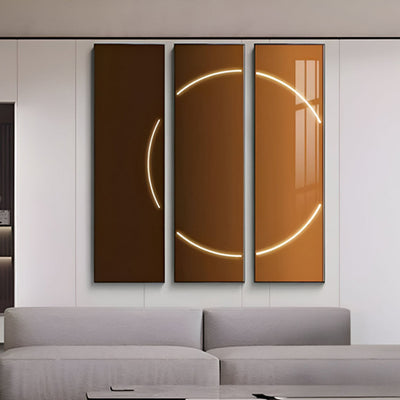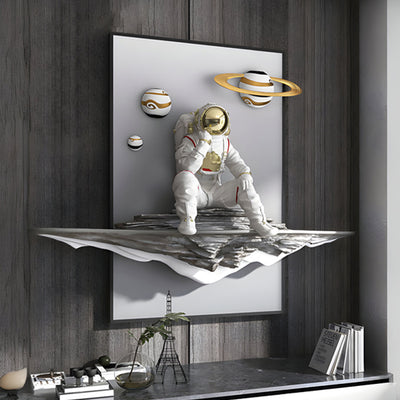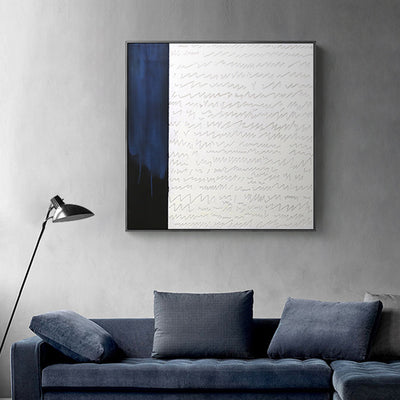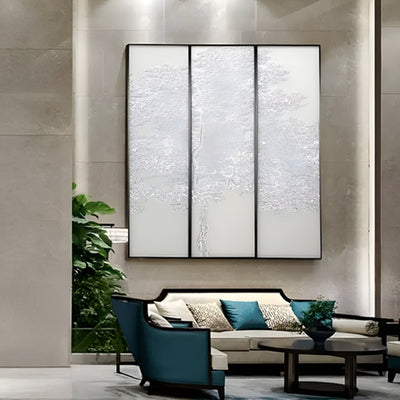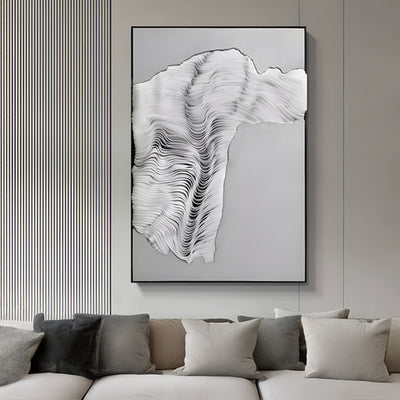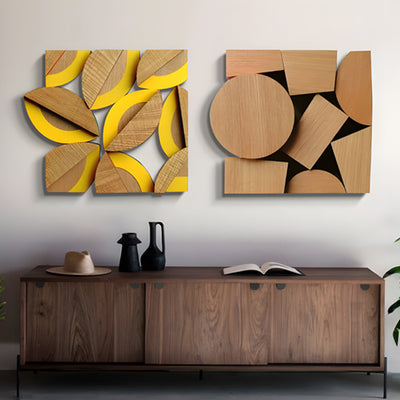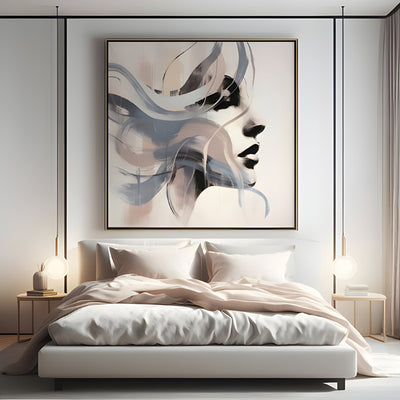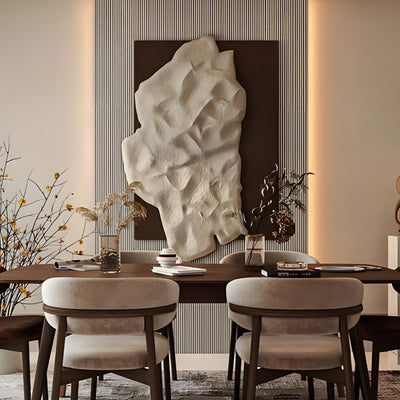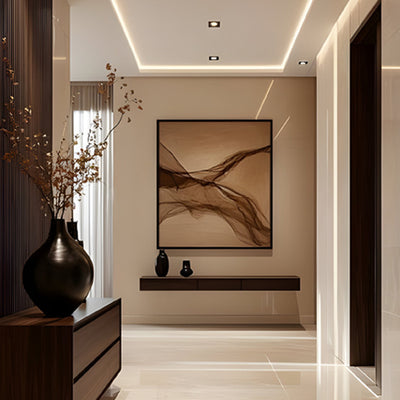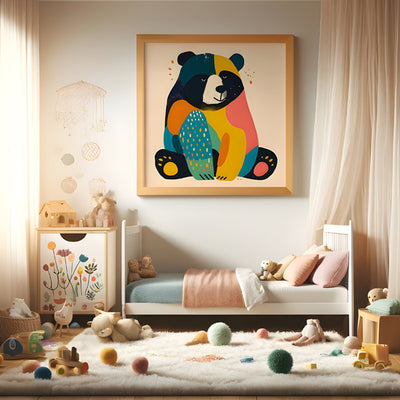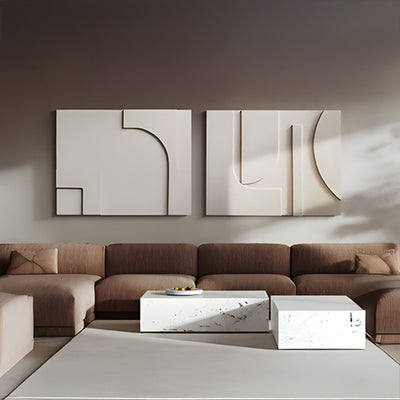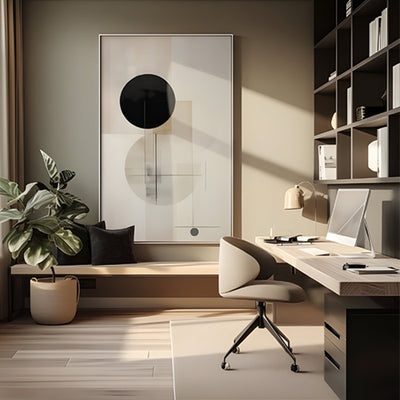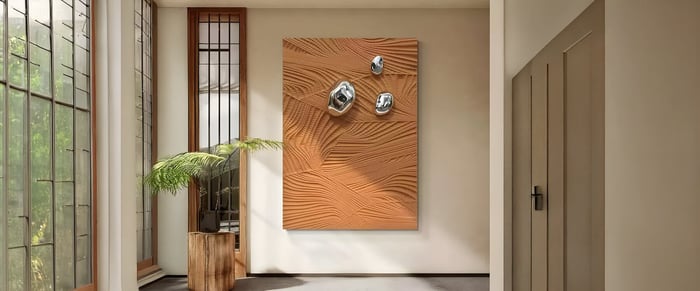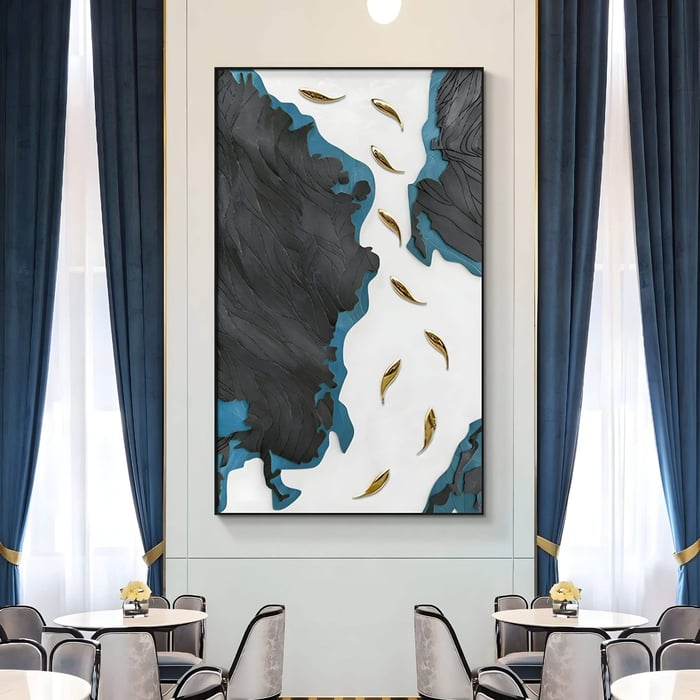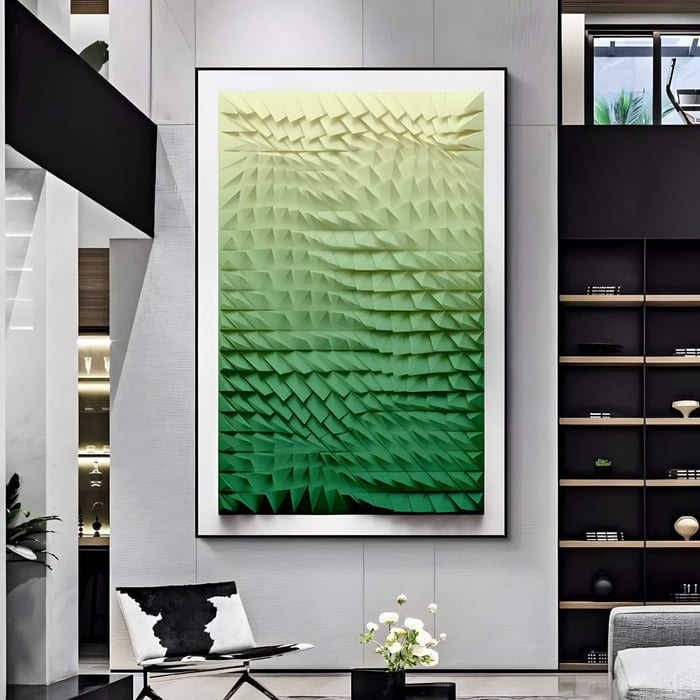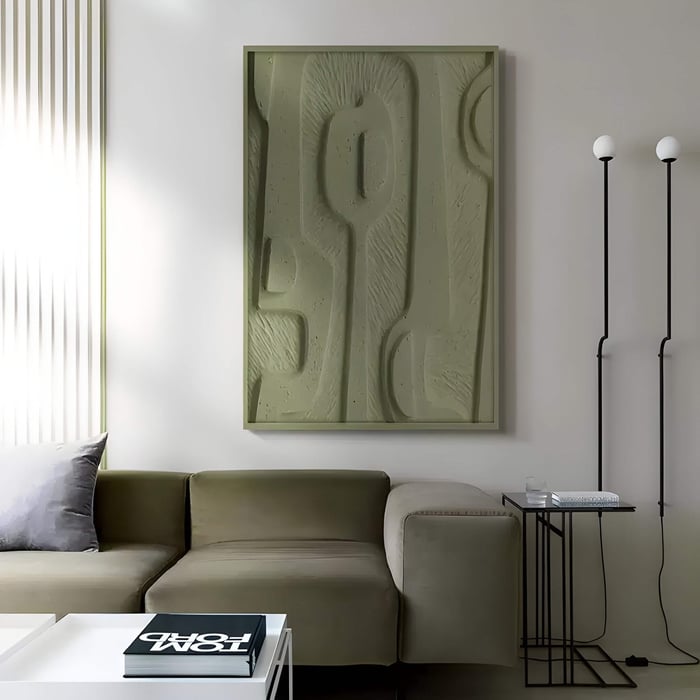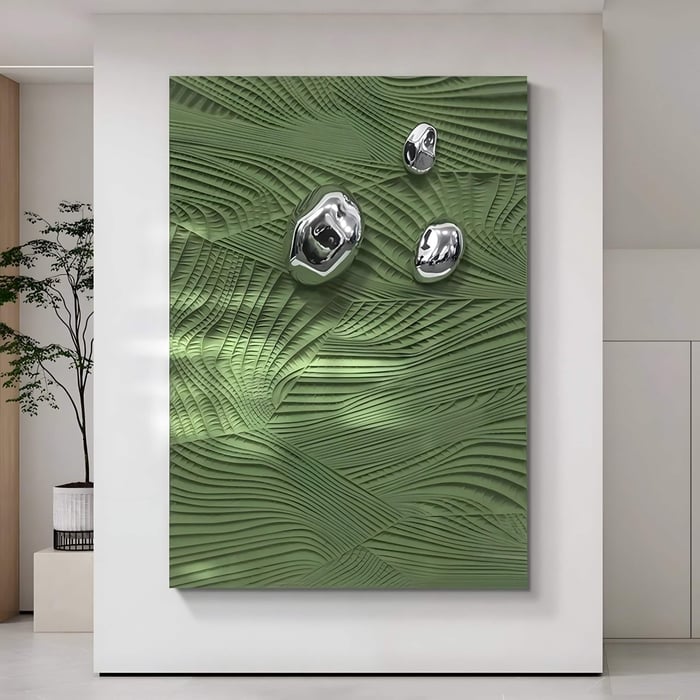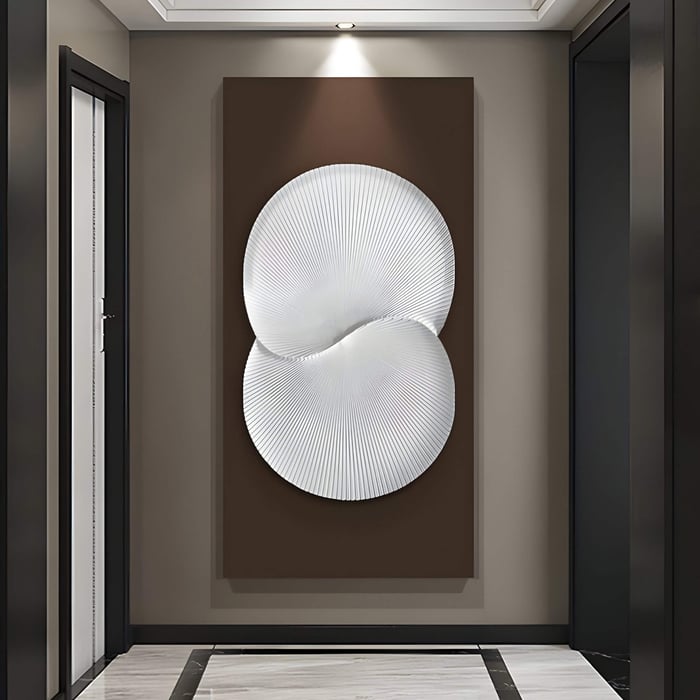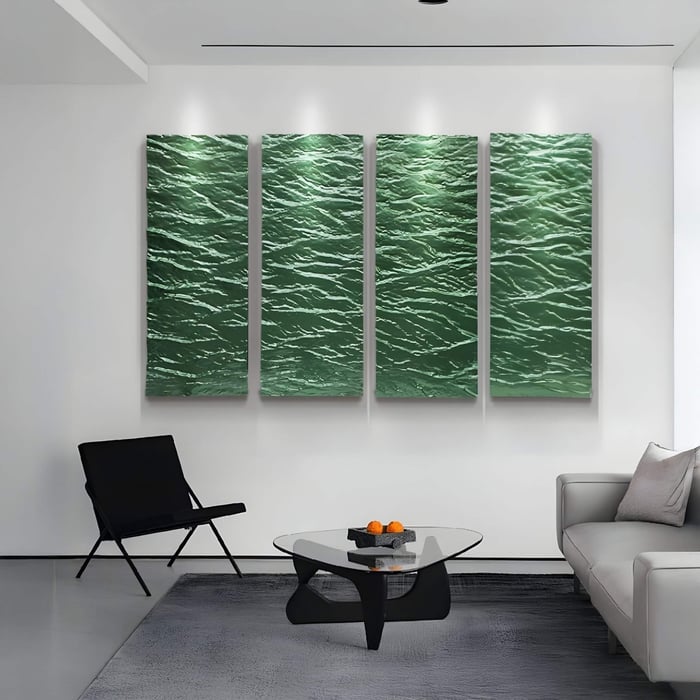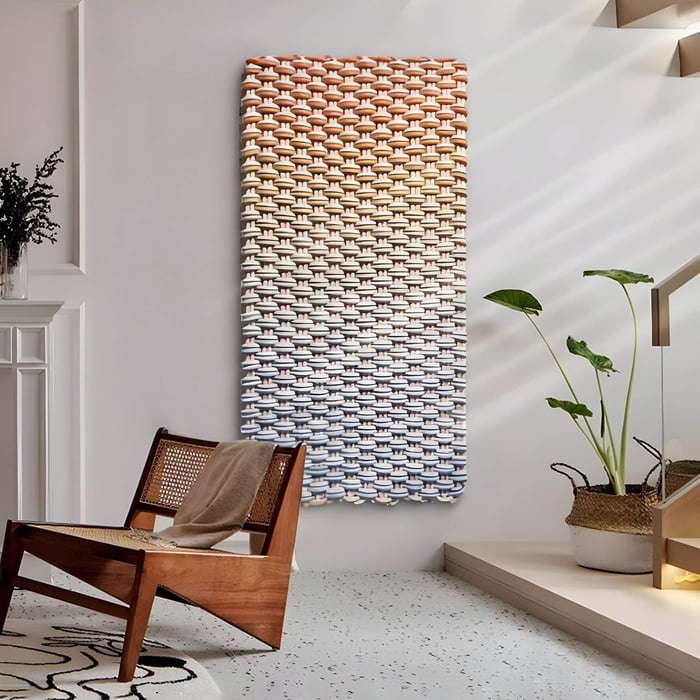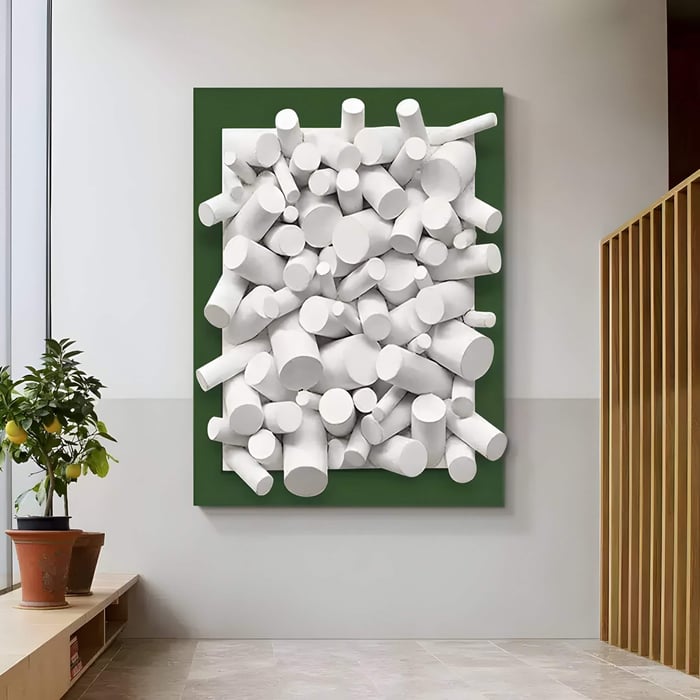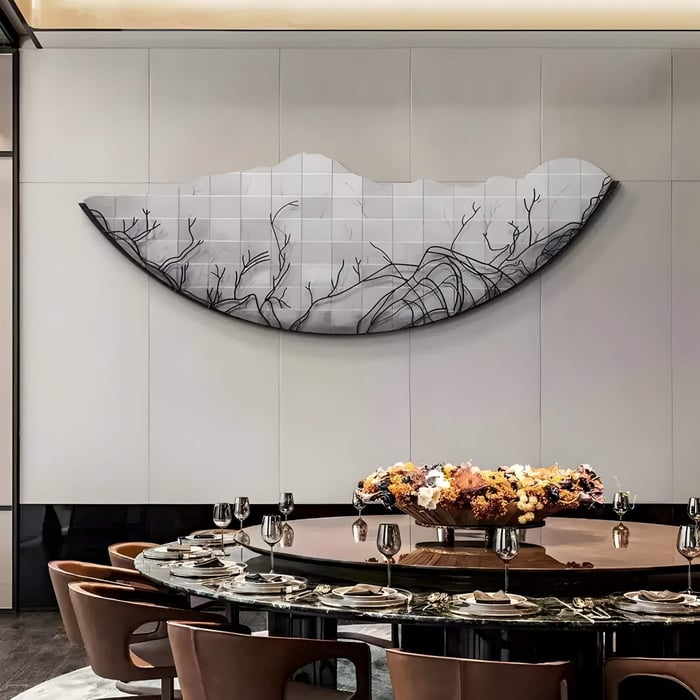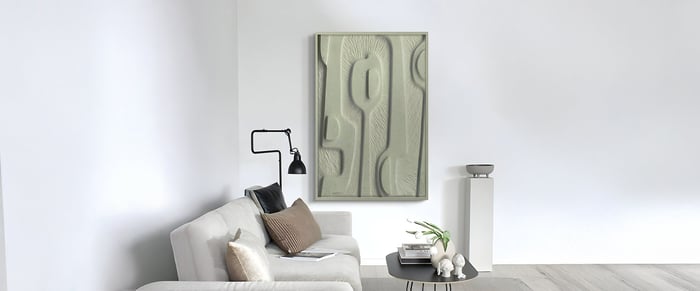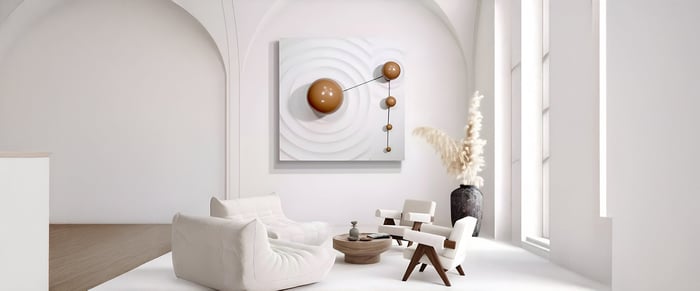Oversized wood art panels have emerged as a powerful way to transform any room into a gallery-worthy space. By covering large expanses of wall with natural grain, these statement pieces immediately draw the eye, balancing high ceilings and blank walls alike. In this comprehensive guide, you’ll learn why these gallery-scale wood pieces work so well, explore the materials and construction techniques behind them, dive into five standout design styles, discover how to choose the perfect panel for your home, and uncover the essential structural, installation, and care considerations to ensure your investment lasts a lifetime.
Why Oversized Wood Art Panels Work
Instant Focal Point
A wall-size wood art panel immediately directs the eye, anchoring the room around a single statement. In open-plan living areas, it replaces the need for cluttered décor; in compact spaces, it creates the illusion of expansiveness.
Architectural Balance
Tall ceilings and blank walls can feel cold or unfinished. Oversized wooden panels harmonise vertical space by filling empty expanses, balancing the ceiling height and tying together disparate furniture pieces.
Scale Illusion
When properly proportioned (covering around 60–80 % of the wall), large panels can make a room feel grand and cathedral-like. Conversely, in a cosy snug, a slightly smaller but still substantial panel can make the room feel intimate and cocooning.
Emotional Warmth
Nothing rivals the tactile comfort of wood. Oversized panels amplify the natural grain’s warmth, oak lends golden glow, walnut lends chocolate depth, and reclaimed timbers lend storied character, all of which infuse any interior with genuine homeliness.
Materials & Construction Techniques
Wood Species & Grain Patterns
Oak: Warm honey tones, pronounced cathedral grain for inviting living rooms.
Walnut: Deep chocolates and espresso hues, perfect for sophisticated dining areas.
Maple: Subtle cream tones and tight grain, ideal for minimalist bedrooms.
Reclaimed Timber: Weathered patina, nail holes, and colour variation, lending true wabi-sabi art appeal.
Panel Assembly
Single-Slab Masterpieces: Carved from a single live-edge slab, showcasing natural tree contours.
Multi-Plank Veneers: Strips of solid wood joined in book-match or staggered patterns for stability.
Engineered Plywood Backing: Plywood core reduces warping, veneered with premium hardwood face.
Finishes & Textures
Natural Oils & Waxes: Enhance grain depth and provide soft sheen.
Whitewash & Tinted Stains: Lighten darker woods for Scandinavian-inspired spaces.
Distressed Edges: Hand-sanded or wire-brushed perimeters to emphasise rustic charm.
Edge Details & Backing
Live-Edge Silhouettes: Irregular, organic outlines that echo the tree’s natural form.
Floating-Frame Profiles: Discreet metal frames that give the panel a suspended, gallery-style effect.
Reinforced Backing Rails: Solid wood or aluminium cross-braces to prevent bowing and ease hanging.
Top Five Design Styles in Oversized Wood Panels
1. Organic Live-Edge Statements
Celebrate the tree’s original form with a single, sculptural slab that retains its bark-edge silhouette. Ideal for feature walls in great rooms, a live-edge panel highlights natural imperfection and serves as a true conversation piece.
2. Geometric Modular Grids
Break the panel into a series of uniform squares or hexagons, each with subtly varied grain or stain. This modular geometric art grid creates rhythmic repetition, perfect for modern interiors seeking order and harmony.
3. 3D Relief Landscapes
Engage the senses with carved topographical maps or botanical reliefs. Raised ridges and carved valleys cast shifting shadows that change with the light, adding depth and a sense of the outdoors to your interior.
4. Abstract Painted Overlays
Combine bold brushstrokes or colour blocks with raw timber beneath. A minimalist wash of white or charcoal over oak, for instance, allows the grain to peek through, merging abstract art with natural texture.
5. Mixed-Media Fusion
Fuse wood with metal accents, resin inlays, or subtle LED edge-lighting. Imagine brushed-steel lines cutting across a walnut panel or luminescent resin veins coursing through reclaimed oak, each piece becomes a multisensory installation.
How to Choose the Perfect Oversized Wood Panel
Measuring & Proportion
Aim for 60–80 % coverage of the wall’s height and width. On a 3 m × 4 m wall, a 2 m × 3 m panel feels balanced without overpowering. Always account for trim, heating vents, and light switches.
Style Cohesion
Rustic or Farmhouse: Reclaimed slabs with heavy distress and warm stains.
Modern or Minimalist: Light maple with whitewashed finish and crisp geometric cuts.
Scandi-Contemporary: Subtle walnut veneers with floating frames.
Industrial Loft: Thick oak or ash panels with visible machine-cut edges.
Practical Factors
Weight Limits: Calculate panel weight (solid oak ≈ 15 kg/m²) against wall stud capacity.
Delivery & Handling: Oversize shipping and on-site installation may require specialist movers.
Maintenance: Choose sealed finishes if panels will face sunlight or humidity.
Custom vs. Ready-Made
Commissioned panels allow bespoke sizing, grain matching, and unique designs, often from £2,000 +. Pre-designed pieces offer immediate delivery, multiple size options, and start from around £1000.
Structural & Safety Considerations for Large Wall Art
Load-Bearing Assessment
Consult a structural guide or engineer for panels over 30 kg. Use stud-finders to locate load-bearing timber. For masonry walls, choose appropriate anchors and plugs.
Mounting Hardware Selection
French Cleats: Provide a flush mount and easy removal for maintenance.
Steel Z-Bars: Offer minimal gap and robust support for heavy items.
Reinforced Anchors: Choose metal anchors rated for 40 – 50 kg per fixing.
Backing Reinforcement
Panels wider than 1.2 m benefit from aluminium cross-bracing, preventing long-term sagging. For live-edge slabs, additional support along the top edge ensures even weight distribution.
Seismic & Vibration Factors
In quake-prone zones or high-traffic homes, add safety cables or secondary fasteners at the panel’s lower edge to prevent tipping in an event.
Installation & Styling Tips
Secure Mounting Solutions
Locate Studs with a reliable stud-finder.
Attach Cleats into studs using 8 × 1.5 in screws.
Hang Panel by slotting upper frame edge onto cleat, then secure lower edge with discreet L-brackets.
Lighting Strategies
Wall Washers: Install LED wall-washer fixtures at ceiling level to bathe the panel in even light, emphasising grain texture.
Track Spotlights: Angle multiple spotlights to highlight different areas, creating dynamic shadow play.
Hidden LED Strips: Place narrow LED strips behind floating-frame edges for a halo effect that visually lifts the panel off the wall.
Complementary Décor
Keep surrounding décor minimal: neutral sofas, low-profile consoles, and a single potted plant let the wood panel remain centre stage. Anchor the panel with a textured rug that echoes its tones.
Seasonal & Layered Displays
Refresh smaller wall hangings like woven tapestries or iron art, around the large panel to avoid monotony. Swap accent cushions or throws seasonally to complement the panel’s warmth or contrast its hue.
Conclusion: Make a Monumental Statement with Wood Art
Oversized wood art panels fuse nature’s inherent beauty with architectural scale, transforming ordinary walls into immersive, gallery-scale installations. By understanding materials, embracing design styles, and respecting structural demands, you can you can transform any space, be it a lofty living room or a snug reading nook, into a showcase of organic elegance. Ready to discover the perfect piece? Explore Giant Sculptures’ collection of wall-size wood art panels and commission a show-stopping statement that’s as unique as your space. Your walls will never be the same again.











